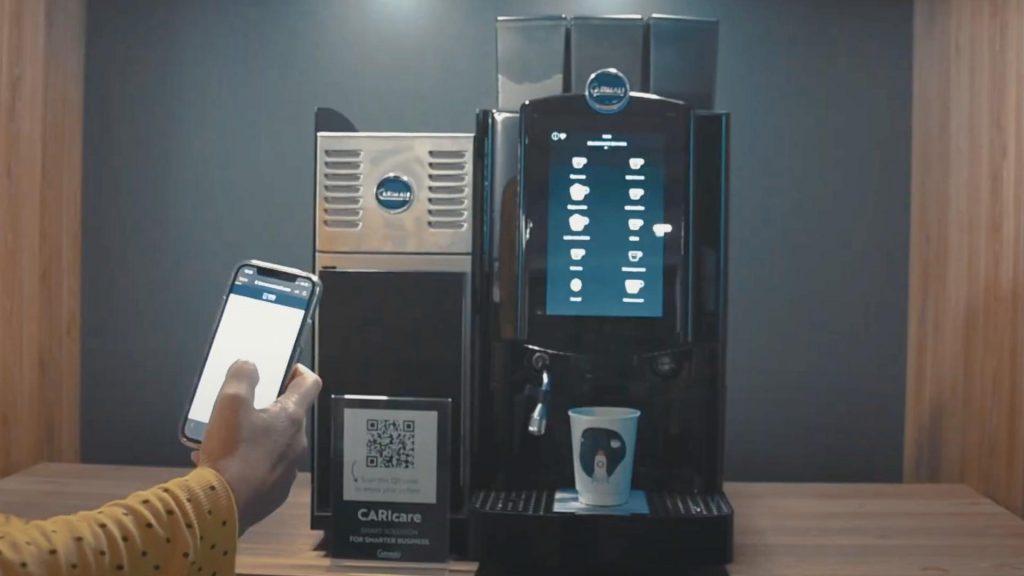Exploring the rise of tech-led coffee companies
Bellwether Coffee’s chief coffee officer, Arno Holschuh, talks about the intersection between technology and coffee, and how the future of tech-led coffee companies is shaping up.
Technology has always played an important role in the coffee industry, from machines used to pick ripe cherries to software used for tracking changes during a roast.
However, the last few years have seen the arrival of coffee companies built almost entirely around single innovations. Known as “tech-led” companies, they exist at every stage of the supply chain, whether analysing coffee quality with AI or ordering takeaway cold brew via an app.
They have become increasingly widespread, particularly since the outbreak of Covid-19 in early 2020. And, little by little, they are dramatically changing the way in which people not only consume coffee, but grow, process, and roast it.
Arno Holschuh is chief coffee officer at Bellwether Coffee, a California-based manufacturer of electric, fully automated roasters. He says the coffee industry is a natural breeding ground for technology-driven brands.
“Coffee people care about doing the right thing,” he explains, “and so they see tech as the tool they can use to bring about change.”
Indeed, technology can allow coffee companies to develop higher-quality products at a lower environmental and financial cost – both issues that are of growing importance to consumers.
For example, almost two-thirds people in the UK want businesses to do more to help them reduce carbon emissions.
“Businesses have a whole lot of problems to solve – maybe declining profit in your café, maybe global warming destroying your farmers’ livelihoods – and technology gives businesses a way to respond that moves beyond the zero-sum game,” he says.
For Arno, companies that figured out the modern coffee ecommerce toolkit are among the modern pioneers. He adds that in the 21st-century sense of the word, “tech” tends to mean “disruptive digital technology”.
How are tech-led coffee companies developing?
In the context of coffee, there is plenty of scope for continued technological innovation. Some companies drive innovation through the manufacturing process, while customer-facing businesses are adopting new forms of software to streamline operations.
However, scaling up using hardware – especially for manufacturers in the coffee industry – isn’t always easy.
“Hardware is hard because every change you make to the design necessitates a whole round of prototyping, testing, and procurement – it takes a lot longer to get to a fully mature product,” Arno explains.
“Supply chain challenges and electronic component shortages have made this even worse, so hardware companies take a lot longer to scale, and the more complex the device, the longer it will take to get right.”
The upside, he argues, is that once the process is complete, your product becomes part of peoples’ physical environments.
“People get attached to their gear,” Arno says. “When there is passion for your product, you get a great direct relationship with customers.”
Software, on the other hand, can scale very quickly.
“You saw that with the order-ahead apps,” Arno notes. “First, a couple of companies built their own, then developers started making white-label apps that anyone could use and brand as their own.”
He argues that the pandemic made delivery apps essential for coffee shops and restaurants that wanted to stay afloat. Furthermore, some manufacturers doubled down on their development of “safer” technology like contactless coffee machines.
An example is Carimali’s telemetry system, CARIcare, which allows customers to select a drink from their fully automatic machines by scanning a QR code from their phone, circumventing the need to touch the display.
Innovation thrived out of necessity during the pandemic and coffee companies have taken note, increasingly exploring the tech-led route as a result.

Are tech-led brands changing the coffee industry for the better?
Arno believes that the coffee industry has a very conflicted relationship with sustainability. He says that on one hand, the industry is driving initiatives to reduce its carbon footprint and increase equity throughout the supply chain.
On the other hand, however, it’s extremely nostalgic.
“We dote on our 1960s-era roasters, or we build ones that are designed to mimic them,” he explains. “We all get misty-eyed over lever espresso machines. We find old stuff irresistibly charming and comforting.”
Conversely, technology is enabling greater insight into supply chains, consumer attitudes, and workplaces, ultimately making the industry more efficient.
Thoughtful collection and analysis of data can help with almost any activity in the industry. Bellwether, for instance, uses data to predict when its roasters are due for maintenance or diagnose malfunctions from its Berkeley head office.
However, he cautions that data can be random noise, too. Unless someone is actually harnessing it to improve quality and efficiency, it’s just waste.
“Technology got us into most of the messes we are in,” Arno suggests. “If we just deploy technology unthinkingly, it could be used to extract cash from the industry, rather than strengthen our foundations or further our sustainability goals.”
However, he insists that with the power tech-led coffee companies have, they have the choice to commit to using technology to do better.
“We can commit to using technology to better ourselves, or we can allow it to devolve us into something much worse,” he asserts. “For every player in the coffee industry, we have to be thoughtful and careful when deploying tech-forward products.”
He adds that tech-led companies can make the coffee industry more vibrant, accessible and supportive – but only if they decide to make that the case.
“That’s my mission, really: use technology to make this industry a model for a better economy and society,” he ends. “Ambitious? Yes, but then again, we all drink a lot of coffee, so ambition comes with the territory.”








